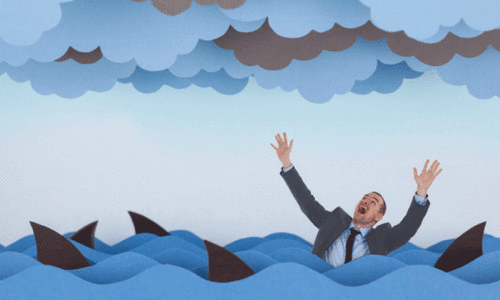PARIS, Dec 24: France is becoming the latest country to woo Islamic banks, which avoided much of the damage from the subprime mortgage crisis by following strict principles laid out in the Quran _ as the global financial crisis broadens the appeal of Islamic finance.
French Finance Minister Christine Lagarde has promised to make adjustments to the regulatory and legal arsenal to enable Paris to become a major marketplace in Islamic finance.
At a recent forum in Paris, she said Western financiers could learn a thing or two from the Islamic world as global leaders try to establish “new principles for the international financial system, based on transparency, responsibility and, I would like to add, moderation.”
“In this sense, Islamic finance is calling out to us,” she said.
Finance that complies with Shariah accounts for around $700 billion of assets and is growing at 10 to 30 per cent a year, according to Moody’s Investors Service.
That’s grabbing the attention of governments eager to oil their liquidity-strapped economies with money and deposits from the Islamic world. Islamic finance is concentrated in the Persian Gulf and Muslim parts of Asia such as Indonesia and Malaysia but is spreading into North Africa and Europe.
London has attracted the largest pool of Shariah-compliant assets in the West and desire to compete with Britain’s ailing financial centre is motivating Paris to get in on the act. The country has some five million Muslims, but does not offer Islamic-based retail banking, and the country’s secular traditions may present an obstacle to a French version of the Islamic Bank of Britain.
Moody’s ratings agency noted in a November report that Islamic financiers will need to quell fears that France’s official religious neutrality could be put at risk.
But more people are seeing business reasons to attract Islamic funds. A report by economics professors Olivier Pastre and Elyes Jouini claims that France could attract up to euro100 billion ($136.9 billion) from Islamic financial institutions.
“We want to make sure that Paris is in a position to be able to welcome this money to finance the French economy,” said Gilles Saint Marc, a Paris-based lawyer who is advising an Islamic institution which plans to make a formal application to start investment banking activities in France.
Anouar Hassoune, a senior credit officer at Moody’s France and co-author of the book ‘Islamic Finance a la francaise,” said that Islamic institutions could initially focus on investing in property and Shariah-compliant businesses, and within three to five years they might also offer retail services. He mentioned Kuwait Finance House and Al-Baraka Islamic Bank as possibilities.
A November report by Moody’s shows that Islamic banks have been fairly resilient. No Islamic financial institution has acknowledged investing in Bernard Madoff’s $50 billion Ponzi scheme, and Saleh Al Tayar, Secretary General of the Franco-Arab Chamber of Commerce, said the $4.9 billion hit taken by Societe Generale SA from what it calls unauthorised trading by Jerome Kerviel couldn’t have happened in an Islamic institution.
“If global banking practices were based on Islamic practices, we wouldn’t be seeing the kind of crisis we are living through now,” he said.
Islamic financial institutions work on a philosophy of prohibiting transactions considered immoral and promoting greater social justice by sharing risk and reward. Investing in casinos, pornography, arm dealers or anything to do with pork is out: long-term investments in projects considered to benefit society are in.
Interest payments, short selling and contracts considered excessively risky are also prohibited. That rules out some of the products that got Western finance into so much trouble such as subprime mortgages, collateralised debt obligations or credit default swaps.
Sukuks are the equivalent of bonds, but instead of selling a debt, the issuer sells a portion of an asset which the buyer is allowed to rent.
“Islamic finance does demonstrate good banking behaviour that has been perhaps lost over the last 10 years or so,” said Neil Miller, head of Islamic finance at Norton Rose and an adviser to the British government.
“Islamic banking is saying we are close to our clients and we’re only going to do genuine transactions where we can see the asset, we understand the asset, we can make an assessment of that asset: whether it’s financing a ship or an aircraft they will go and have a look at the business. It’s giving guidance as to what banking should be.”
Hassoune says that conventional banks can be as ethical as an Islamic bank but competition and shareholder demands have encouraged excessive risk taking.
“I don’t think conventional banks are dirty, bad, money obsessed,” he said. But “they are pushed to make unreasonable profits.’’ —AP










































Dear visitor, the comments section is undergoing an overhaul and will return soon.